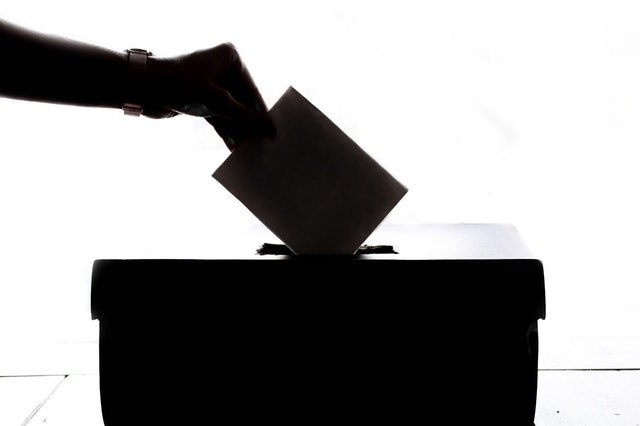Electoral transparency: a step towards strengthening Nigeria’s democracy in fort
04. February 2019 at 09:03
A comparative study shows that the 84 million registered voters as released by the Independent National Electoral Commission (INEC) for the 2019 general elections signals an improved level of political participation when weighed against the 68 million obtained in the 2015 polls. That is 18.6% increase in the voters’ register despite the fact that the country witnessed a 7% increase in its population. This increase, if sustained, is a step towards fostering democracy.

However, mass participation as described above isn’t the ultimate if the democratic processes meant to usher in the choice of the people are marred with irregularities begging for the question of integrity. Flouting or subverting formal processes as forms of corruption undermine democracy and good governance.
These corrupt acts cut across the three phases of the electoral cycle; that is, the pre-election, election and post-election periods. Although the pre-election phase, which involves; registration of voters, party primaries and campaigns, was faced with cases of financial inducement, allegations of registration of underage voters and other related corrupt practices, this article focuses majorly on the other two phases because the first phase is almost gone.
It is not surprising that political parties in Nigeria have resorted to financial inducement in recent years more than ever before. According to the 2018 UN reports, Nigerians are the poorest in the world, hence, vote-buying thrives in the country. Practically, there is a limit to what litigation and law enforcement agents can do because the act now comes in different dimensions at the voting points.
Also, the appointment of the electoral chairman by the government of the day has posed a challenge to the neutrality of the body, thereby encouraging bribery and cronyism. Little wonder why the opposition parties booed the appointment of Aminat Zakari, a relation of President Muhammadu Buhari, as the chairperson of the national collation centre for the 2019 presidential election.
The snatching of ballot boxes, intimidation/harassment of voters, and other violent acts threaten security of lives and credibility of the returned results. As evident in the Osun state governorship poll, the snatching of electoral materials at three four polling units led to the controversial rerun election, which was marred with electoral violations as observed.
Meanwhile, the post-election phase has to do with the compromise of the judicial arm of government at the Electoral Petition Tribunal. The independence of the judiciary, saddled with the responsibility of hearing cases related to the conduct of election, is threatened by the appointment of judges by the executive arm. This interference goes a long way in the corrupt tendencies to pervert justice.
For instance, in the recent Presidential election in DR Congo, Mr. Martin Fayulu, the first runner-up, has filed an appeal in the Constitutional Court demanding a recount. The court can either order a recount, nullify the former results and a fresh election will be conducted or declare Felix Tshisekedi’s victory. That’s the power of the judiciary. What will then be the fate of the masses if the judiciary is corrupt?
After a cursory look in to these electoral irregularities, it’s expedient to proffer solutions and proactive measures towards achieving a peaceful, credible and transparent election.
Firstly, the need for the independence of the electoral commission and the judiciary cannot be overemphasized. These two institutions should be given the exclusive rights to decide their leaderships in accordance with the Nigerian civil service regulation which will curb corruption tendencies on grounds of ethnicity and political affiliations.
The Nigerian senate should take a step further after opening a public hearing on vote-buying in December 2018 by seeing to other related practices and excess deployment of security personnel. These concerns should be given utmost attention if the country truly desires a transparent electioneering process.
Interminably, the media which serves as a major stakeholder throughout the three phases should play its role objectively without biases. It’s unfortunate that some journalists are not familiar with the electoral Act and the electoral guidelines. They tend to misinform the public and sometimes report frivolities at the expense of issue-based reporting.
I was shocked to see reputable media houses making fuss about the pronunciation of a particular word by a Presidential aspirant during the campaign rally. These are contents for bloggers as that should not be the major projection of a reliable mainstream media organization. The media pay attention to the manifesto programmes, erroneous facts injurious to public consumption and how politicians seeking re-election have fared in their previous tenures.
However, the media should as a sense of duty curb misinformation and focus on setting political agenda for the audience through journalistic writings, columns, commentaries, editorials, articles, reviews, broadcast discussions and campaign message analyses.
All in all, civic groups and civil society organisations should channel all efforts and resources to proper sensitization of the electorate. The power of enlightenment can’t be overemphasized as it effects will not only influence the decision of the citizens but also make them a preacher of the gospel of free, fair and credible election.
In the words of the late Kofi Anan, while dissecting the threats to democracy in Africa at a lecture in Ghana; “At the end of the day, what matters is not which candidate or which party that wins an election, as along as the country wins.”
Cite This Article As: Alfred Olufemi. "Electoral transparency: a step towards strengthening Nigeria’s democracy in fort." International Youth Journal, 04. February 2019.
Link To Article: https://youth-journal.org/electoral-transparency-a-step-towards-strengthening-nigeria





Link To Article: https://youth-journal.org/electoral-transparency-a-step-towards-strengthening-nigeria
















